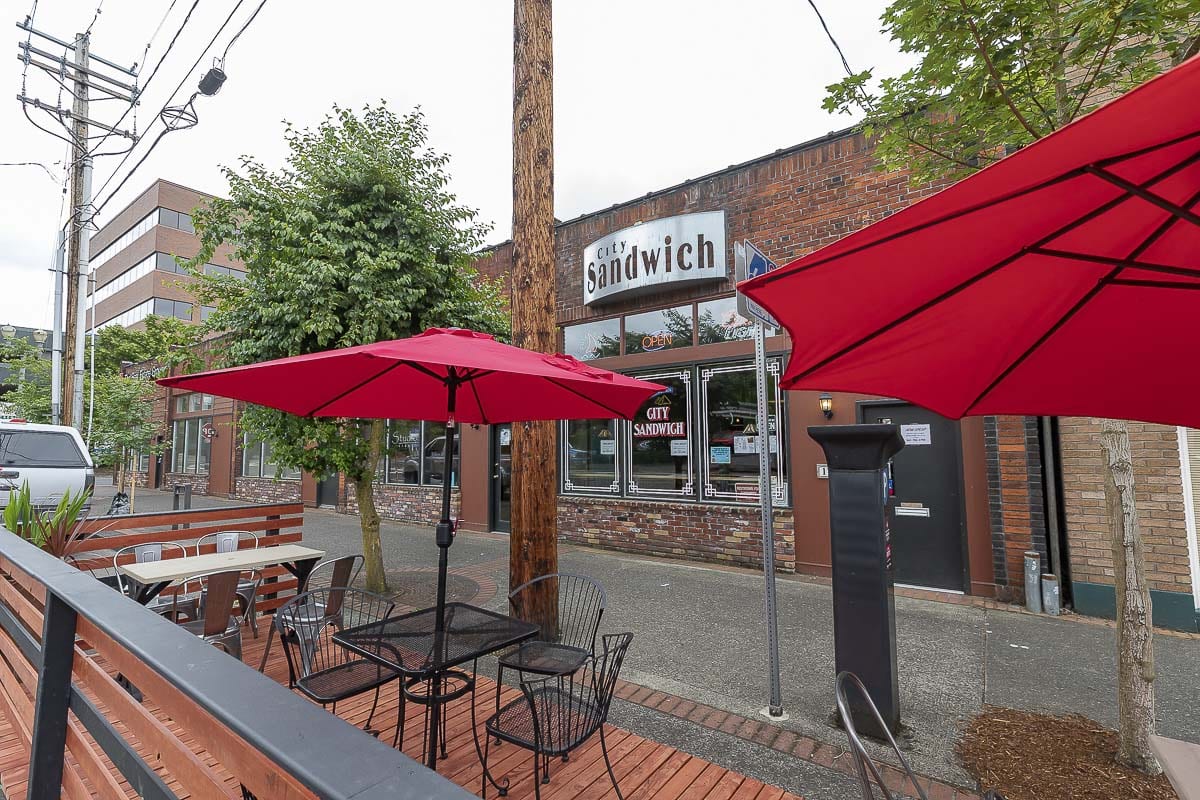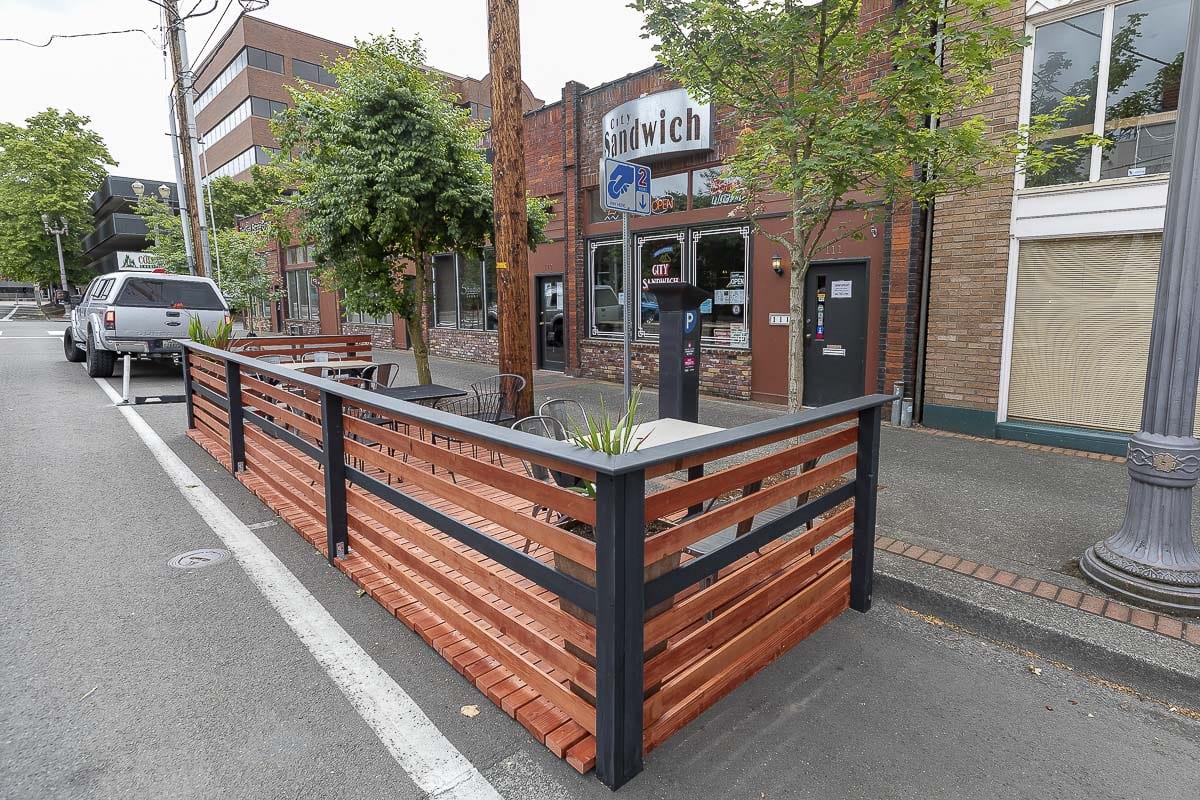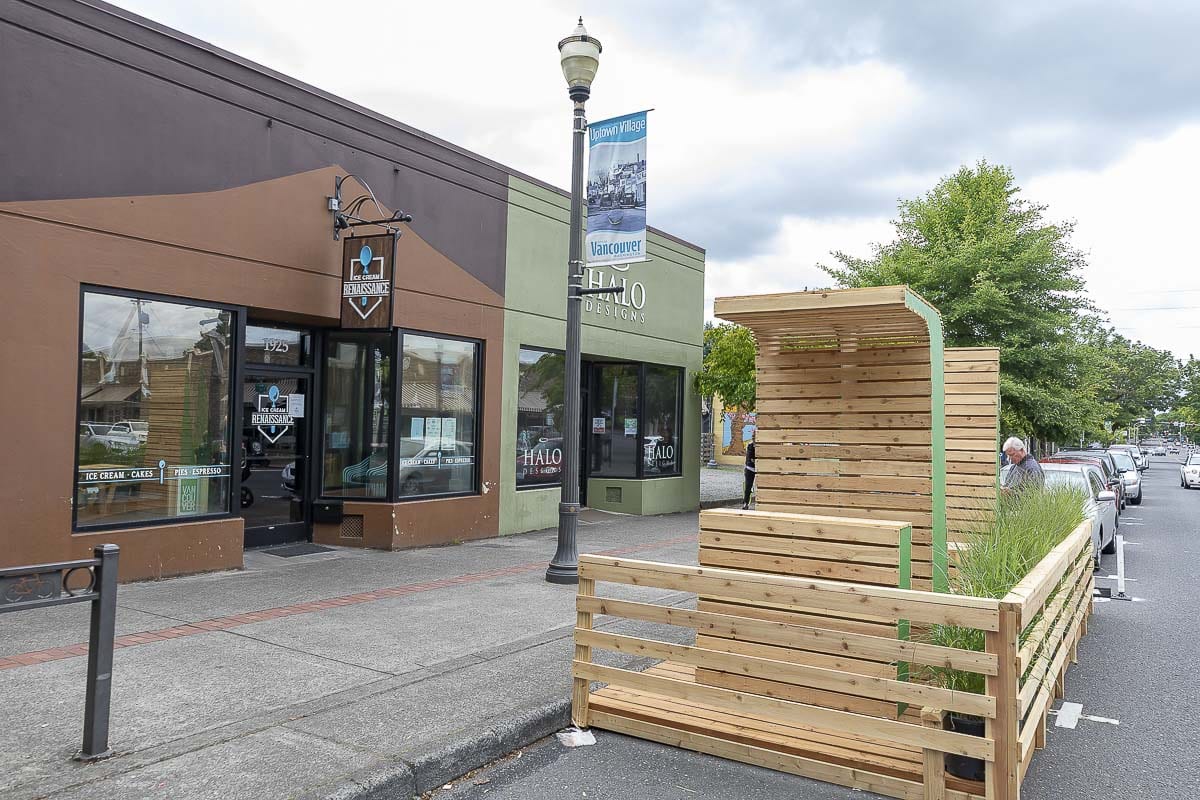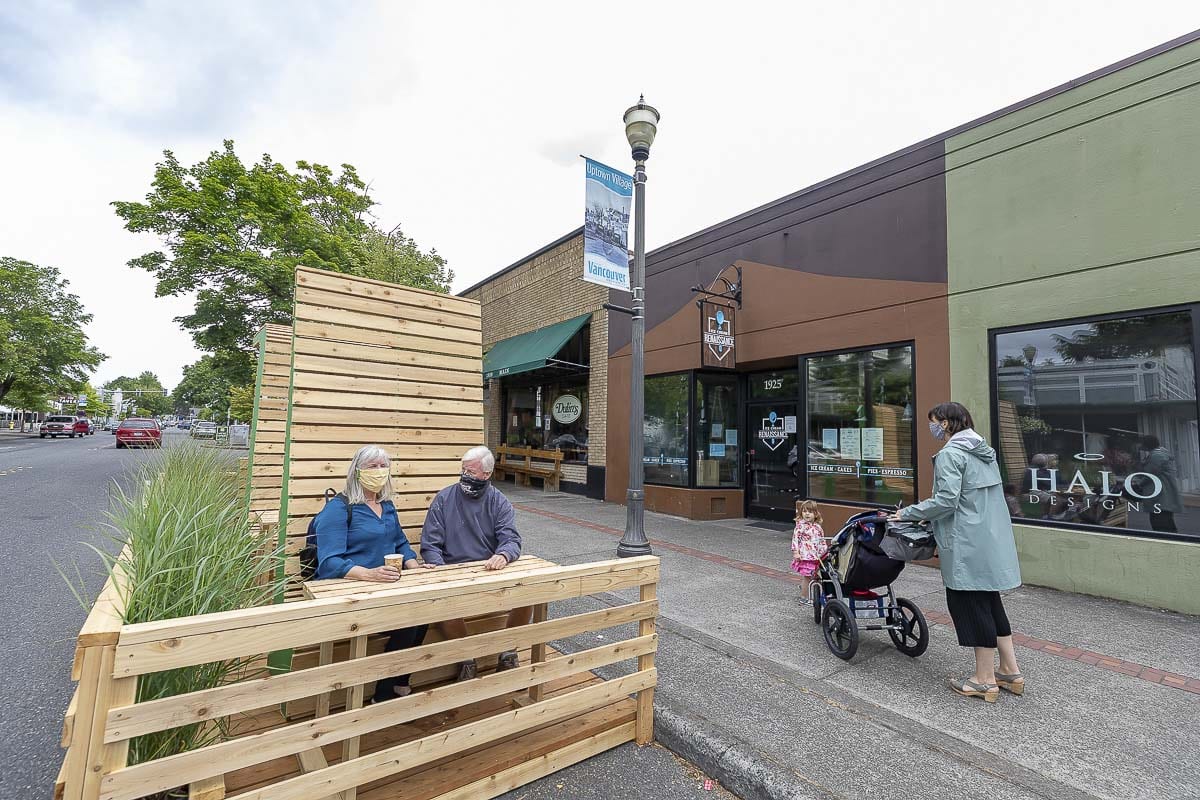The outside seating can increase customers, but likely won’t pencil out unless the city makes the program permanent
VANCOUVER — As the owner of any restaurant knows, there is a fine balance between investing in your business, and potentially over-extending yourself.
That goes triple as the local economy cautiously tries to make its way out of an economic shutdown in the midst of a pandemic.

From March 23 until June 5, restaurants in Clark County and across much of the state were limited to take out orders only. As the county entered Phase 2, they were allowed to welcome dine in customers back, but only at half of their usual capacity.
The city of Vancouver, along with the Vancouver Downtown Association, worked out a possible compromise. The Street Eats program would allow restaurants downtown to build parklets, filling up to two street parking spots with an outdoor seating area.
This would allow customers to feel more comfortable eating outside, and restaurants to serve more people at a time than restrictions would otherwise allow.
Teresa Brum, a division manager with the city’s Community and Economic Development department, said interest in the program has been growing.
As of last week, four restaurants had either built parklets, or were in the process of doing so. Another 18 had applied to either renew or implement permits for sidewalk cafe seating.

The Mighty Bowl was the first restaurant to introduce a parklet, built by LSW Architects as a proof of concept. A similar design has been installed outside of Ice Cream Renaissance on Main Street. Little Conjeo at 6th St and Washington also plans to install one.
City Sandwich Co. on 8th Street between Main and Broadway went with a simpler version, built by the boyfriend of manager Robin Herz at a discount.
The parklet, which expands the sandwich shop’s customer capacity by 12 people, ran $4,000 for materials and labor. The Mighty Bowl and Ice Cream Renaissance parklet reportedly cost at least twice that much.
Herz calls it a “pretty big risk.”
“Right now, what we’ve heard from the city is they don’t see it going away,” says Herz. “They’re pretty sure that it’s going to stick around.”
The Street Eats program is currently available through an emergency declaration from the city, and is set to expire at the end of September. So, if members of the City Council decides not to either extend that date, or make the program permanent during the summer months, most of the investment likely won’t be made up, says Herz.
Not in raw numbers, at least, though the parklet has proven good for exposure.
“We’re in a brick building. We blend in with all of the other businesses,” says Herz. “So a lot of people that have lived here for 20 or 30 years come in and they go, ‘Wow, we never even knew that there was a restaurant here.’”

Michael Wheeler, executive director of Vancouver Downtown Association, noted that the Mighty Bowl parklet came together in just 10 days, thanks to a partnership with LSW Architects, as well as Riff Creative and FrontDoorBack.
Herz admits that, unlike many experiences dealing with permitting and inspections, the parklets process was relatively painless. Within a couple days of expressing interest they had a visit from the city, along with a walkthrough which provided a guideline for how the parklet would need to be designed.
Within a few days, the city had cleared up a couple potential roadblocks and they had their design approved and a permit issued.
“Working with the city has been great,” says Herz. “They’ve been very resourceful, very prompt to get back to us and answer any questions that we had.”
There has been some confusion with the state’s Liquor and Cannabis Board, which determines whether restaurants can serve alcohol at outdoor seating locations. Herz says the state wanted fencing on the parklet in order to grant them the license, which would have been an added expense so, for now, alcohol can’t be served to the parklet.
“We just said, ‘we’ll worry about it later,’” says Herz. “Maybe if it gets approved in September, then we can go back and add the fencing that’s required and make it bigger or do something different.”

Parklets can use up to two street parking spaces per block, according to the city. So far, Herz says no one has complained about the missing spots, though they are located near a couple of parking garages.
“Even when we were building it we had a lot of people driving by and they were excited,” says Herz. “‘Yay another parklet,’ ‘Oh my god, it looks so good.’ So I mean, we haven’t really heard anybody complain.”
Herz says the city is considering a grant program that could potentially cover up to $4,500 for the cost of a parklet, but the plan is still under consideration and they didn’t want to wait.
“We had asked them if we go ahead and do it now, is there gonna be any reimbursement for it,” says Herz, “but we haven’t really gotten any answers for that yet.”
The city is also allowing restaurants outside of the downtown area to apply for parklet permits to put seating in their parking lots. Any interested business is asked to email sidewalks@cityofvancouver.us to obtain information on applying for a permit.
For technical assistance with designing a Street Eats area in Downtown or Uptown Village, including plans, budget and implementation information to replicate the ones currently under construction, you can contact director@vdausa.org.




